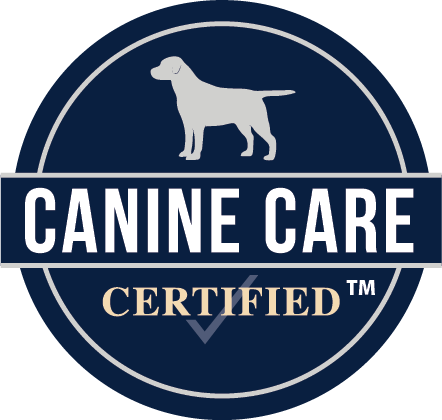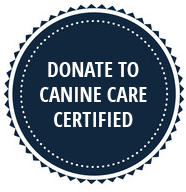About Canine Care Certified™
Purdue University is proud to offer this program purely as a public service consistent with our land grant mission.
Science-based, expert-reviewed standards that go above and beyond current canine welfare regulations.
A Comprehensive Approach to Care
The Canine Care Certified™ Standards are built on cutting edge research on dog care and management practices that lead to continuous improvement in dog welfare. We work with breeders to conduct research that informs the standards, while supporting them with the education they need to meet and even exceed the standards. To learn more about the research, visit the Croney Research Group website.
Our goal is to deliver cutting-edge, evidence-based approaches that change dog welfare for the better, ensuring all dogs and puppies are raised with the attention and care they deserve.
- Research: Investigate and identify best practices for dog welfare
- Standards: Establish practices that enhance dog welfare
- Education: Deliver science-based, accessible content on all aspects of dog behavior, environment and health
In addition to the research and standards programs, breeders, shelters and rescues, canine health and welfare stakeholders, and interested community members are offered numerous related educational resources and continuing education opportunities. To learn more about these, visit our engagement site and the Canine Welfare Science website.
How We Developed Canine Care Certified
This program was created in 2013 following a request to Dr. Croney by Indiana commercial dog breeders to help them better meet public expectations on canine welfare.
Dr. Croney and her research team spent over a year researching existing standards, laws, and codes of practice for dogs in the US and globally, and identified major gaps in knowledge and regulations. The Croney Research Group and collaborators then compiled a core set of standards and developed a first-of-its-kind research program to rapidly investigate and help bridge these gaps. The first on-site research of the welfare of dogs in commercial breeding kennels was conducted by the Croney Research Group in 2014. While the initial funding for the research was provided by the World Pet Association and the Pet Food Institute, to avoid any conflict of interest, none of our past or current sponsors have involvement, direct or indirect, in the design, conduct or reporting of the research or in the development of the standards.
The first set of standards was peer-reviewed by external experts in canine, health, welfare and ethics who helped to make them even stronger. These standards were pilot tested with breeders across the US to ensure they were practical, affordable, and effective in improving the welfare of dogs and puppies.
See the amazing effects of our work.
The standards are regularly reviewed by our scientific advisory panel and are updated as new knowledge and insights are gained. Our annual education event, The Canine Welfare Science Forum, is used to share research updates, ensure that breeders and all interested stakeholders have access to continuing education, and helps build community that is needed to foster collective responsibility for canine welfare.



